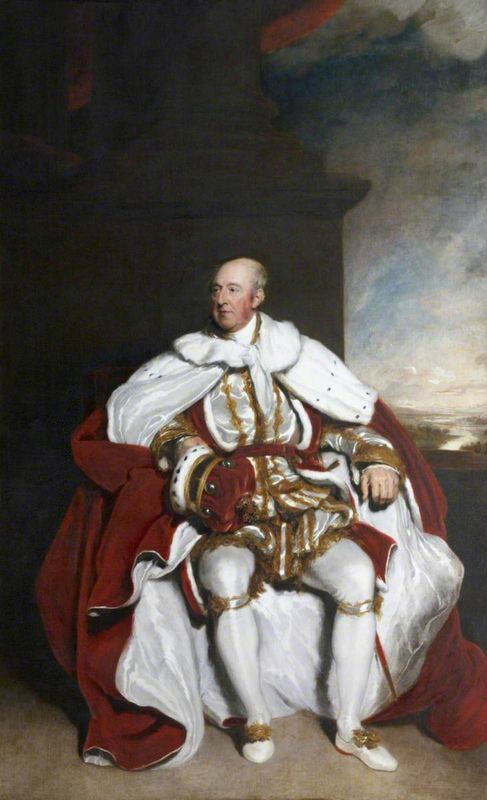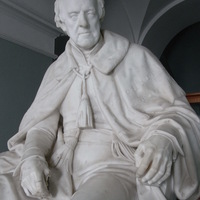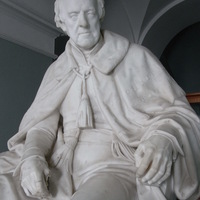How to cite this page Comment citer cette page
Rolle, John, 1st Baron Rolle of Stevenstone
Person
- Media metadata | Métadonnées multimédias
- has biography | a une biographie
-
British slave-owner and politician in the eighteenth and nineteenth centuries.
Rolle owned more than three hundred enslaved people on his estate on the island of Exuma in the Bahamas as part of his inheritance from his father Denys Rolle (1725-1797), who had been granted the land as an American loyalist. In 1830, Rolle, who managed the estates in absentia, attempted to move his enslaved people to Cat Island in order to increase profits, sparking a revolt among the enslaved led by a man named Pompey. Pompey fled into the bush alongside 43 others to avoid being forced to move. They later tried to sail to Nassau to appeal to Governor James Carmichael-Smyth, but were arrested, placed in a workhouse, and flogged as punishment. Rolle begrudgingly accepted emancipation in 1834, but complained in Parliament that his emancipated enslaved people 'refused to work' and protested the expenses required to feed them. Rolle was awarded £4,333 in compensation for 377 enslaved people on his estate, which was the largest compensation sum awarded in the Bahamas.
Rolle's impact on the physical environment of Devon was extensive, and examples of these material legacies across the county include Bicton House, the China Tower, Rolle Canal, Rolle Quay, and Exmouth Sea Wall. In the Bahamas, the memory of Pompey and his revolt against Rolle has been commemorated with a statue. - was born | est né
- 16 October 1756
- died in | est mort par
- 3 April 1842
- has nationality | a la nationalité
- United Kingdom of Great Britain and Ireland
- has type | est de type
- depicted
- is referred to by | est référencé par
- Wikipedia
- Legacies of British Slavery
- Legacy of Devon Slave Ownership Group
- Ancestry - Former British Colonial Dependencies, Slave Registers, 1813-1834
- The Islands of the Bahamas - Statue of Pompey
- History of Parliament Online
- Hansard - House of Lords, 11th August 1834, Vol 25
- Art UK
- National Portrait Gallery
- Michael Craton, ‘Hobbesian or Panglossian? The Two Extremes of Slave Conditions in the British Caribbean, 1783 to 1834’, The William and Mary Quarterly, 35, 2 (1978), 324-356
- Michael Craton, 'We Shall Not Be Moved: Pompey’s Slave Revolt in Exuma Island, Bahamas, 1830', New West Indian Guide/ Nieuwe West-Indische Gids, 57, 1/2 (1983) 19-35
- Michael Craton and Gail Saunders, Islanders in the Stream: A History of the Bahamian People, 2 vols. (Athens: University of Georgia Press, 1992–8)



